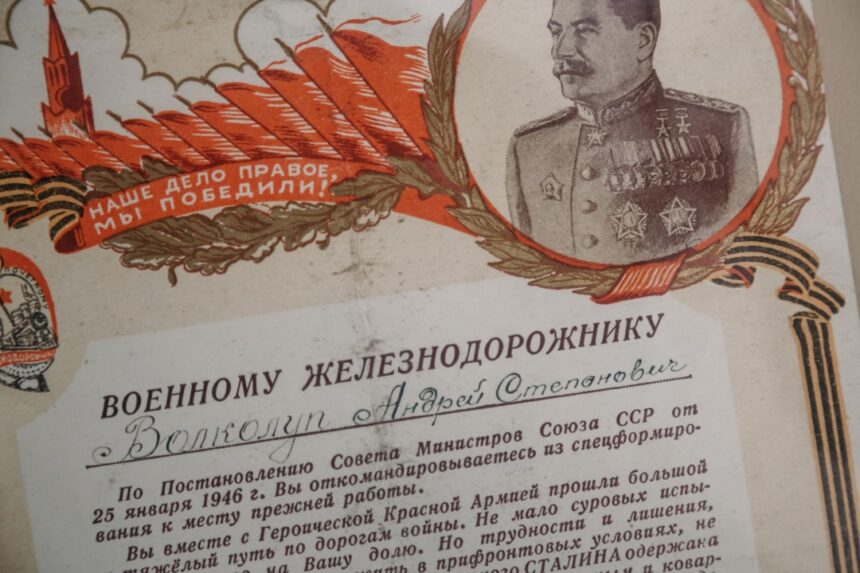In the early 20th century, the United States was undergoing significant social and political changes, and amidst this tumultuous backdrop, J. Edgar Hoover emerged as a pivotal figure in shaping public perception. As the director of the Federal Bureau of Investigation (FBI), Hoover recognized the power of information and its ability to influence the masses.
He understood that controlling the narrative surrounding crime, national security, and civil rights could bolster his agency’s reputation and expand its reach. Thus began the rise of Hoover’s propaganda machine, a calculated effort to craft a specific image of the FBI and its role in American society. Hoover’s propaganda efforts were not merely reactive; they were strategic and multifaceted.
He employed various media channels, including newspapers, radio broadcasts, and public speeches, to disseminate information that painted the FBI in a heroic light. By emphasizing the agency’s successes in combating crime and subverting perceived threats to national security, Hoover sought to instill a sense of trust and admiration among the American public. This campaign was not just about promoting the FBI; it was about establishing Hoover himself as a symbol of law and order during a time when many Americans felt vulnerable to crime and social upheaval.
Key Takeaways
- Hoover’s propaganda machine rose to power through the use of manipulation and control of information.
- J Edgar Hoover played a significant role in shaping public opinion through his propaganda tactics and strategies.
- Hoover’s propaganda had a profound impact on American society, influencing public perception and government policies.
- Techniques such as censorship, disinformation, and surveillance were used by Hoover to manipulate public perception.
- The relationship between Hoover’s propaganda and government policies highlights the influence of propaganda on political decision-making.
The Role of J Edgar Hoover in Shaping Public Opinion
J. Edgar Hoover was not just a bureaucrat; he was a master manipulator of public opinion. His understanding of human psychology allowed him to tap into the fears and aspirations of the American populace.
By presenting the FBI as a bulwark against crime and subversion, Hoover effectively positioned himself as a guardian of American values.
Hoover’s influence extended beyond mere public relations; he actively sought to shape the political landscape by aligning his agency’s objectives with national interests.
He understood that public support was crucial for the FBI’s expansion and for securing funding from Congress. By framing the agency’s work as essential to national security, Hoover was able to garner support from both politicians and the general public. His ability to manipulate public sentiment allowed him to maintain a firm grip on power, ensuring that his vision for the FBI would be realized.
The Impact of Hoover’s Propaganda on American Society

The impact of Hoover’s propaganda on American society was profound and far-reaching. By cultivating an image of the FBI as an indispensable institution, Hoover not only enhanced the agency’s reputation but also influenced societal attitudes toward law enforcement and civil liberties. The portrayal of criminals as existential threats fostered an environment of fear that justified increasingly aggressive policing tactics and surveillance measures.
This shift in public perception had lasting implications for how Americans viewed their rights and the role of government in their lives. Moreover, Hoover’s propaganda contributed to a culture of suspicion and paranoia that permeated American society. The emphasis on crime and subversion created an atmosphere where dissent was often equated with disloyalty.
This climate stifled open discourse and led to the marginalization of various groups deemed “un-American.” As Hoover’s narratives took hold, they shaped not only public opinion but also policy decisions that prioritized security over civil liberties, setting a precedent for future government actions in times of crisis.
The Techniques Used by Hoover to Manipulate Public Perception
| Technique | Description |
|---|---|
| Fear-mongering | Hoover used fear tactics to manipulate public perception, often exaggerating threats to national security. |
| Propaganda | Hoover utilized propaganda to spread biased information and influence public opinion in favor of his agenda. |
| Surveillance | Hoover’s FBI conducted extensive surveillance on individuals and groups to gather information that could be used to manipulate public perception. |
| Blackmail | Hoover and the FBI used information obtained through surveillance to blackmail and manipulate individuals into supporting their agenda. |
Hoover employed a variety of techniques to manipulate public perception effectively. One of his most notable strategies was the use of sensationalism in media coverage. By orchestrating high-profile arrests and showcasing dramatic crime-fighting successes, he captured the public’s attention and generated headlines that reinforced his narratives.
This sensationalism was often accompanied by carefully crafted press releases that highlighted the FBI’s achievements while downplaying any failures or controversies. In addition to sensationalism, Hoover utilized fear-mongering as a tool for manipulation. He frequently emphasized the dangers posed by organized crime, communism, and other perceived threats to American society.
By framing these issues in stark terms, he created a sense of urgency that compelled citizens to support his agency’s initiatives. This tactic not only garnered public backing but also justified invasive measures such as surveillance and infiltration of various groups, further entrenching the FBI’s power in American life.
The Relationship Between Hoover’s Propaganda and Government Policies
The relationship between Hoover’s propaganda efforts and government policies was symbiotic. As Hoover successfully shaped public opinion in favor of increased law enforcement powers, government officials were more inclined to support policies that aligned with his vision for national security. This alignment resulted in significant legislative changes that expanded the FBI’s authority, allowing it to operate with greater autonomy and less oversight.
Moreover, Hoover’s influence extended into the realm of foreign policy, particularly during the Cold War era. His portrayal of communism as an imminent threat helped justify aggressive anti-communist measures both domestically and internationally. The Red Scare, fueled by Hoover’s rhetoric, led to widespread paranoia and the implementation of policies that curtailed civil liberties in the name of national security.
This relationship between propaganda and policy not only solidified Hoover’s power but also set a precedent for future administrations to prioritize security over individual rights.
The Legacy of Hoover’s Propaganda Victory

The legacy of Hoover’s propaganda victory is complex and multifaceted. On one hand, his efforts successfully established the FBI as a formidable institution in American society, one that continues to wield significant influence today. The narratives he crafted around crime and national security have persisted, shaping public perceptions of law enforcement for generations.
On the other hand, this legacy is marred by ethical concerns regarding civil liberties and government overreach. Hoover’s propaganda tactics laid the groundwork for future government agencies to adopt similar strategies in their quest for power and legitimacy. The normalization of surveillance, fear-mongering, and sensationalism in political discourse can be traced back to Hoover’s era.
As such, his legacy serves as both a cautionary tale about the dangers of unchecked authority and a reminder of the enduring impact that propaganda can have on society.
The Opposition to Hoover’s Propaganda and its Impact
Despite Hoover’s formidable propaganda machine, there were voices of opposition that emerged during his tenure. Civil rights activists, journalists, and concerned citizens began to challenge the narratives propagated by Hoover and his agency. They questioned the ethics of surveillance practices, highlighted instances of abuse within law enforcement, and called for greater accountability from government institutions.
This opposition played a crucial role in shaping public discourse around civil liberties and government overreach. As dissenting voices gained traction, they forced a reevaluation of Hoover’s tactics and prompted discussions about the balance between security and individual rights. While Hoover maintained significant control over public perception for much of his career, this growing opposition ultimately contributed to a more nuanced understanding of law enforcement’s role in society.
The Ethical and Moral Implications of Hoover’s Propaganda Tactics
The ethical and moral implications of Hoover’s propaganda tactics are profound and warrant careful consideration. By prioritizing public perception over truth, Hoover engaged in practices that blurred the lines between fact and fiction. His use of fear-mongering not only manipulated public sentiment but also fostered an environment where civil liberties were often sacrificed in the name of security.
Moreover, Hoover’s tactics raised questions about accountability within government institutions. The unchecked power he wielded allowed for abuses that went largely unchallenged during his tenure. This lack of oversight has had lasting repercussions on how citizens view law enforcement today, contributing to ongoing debates about transparency, accountability, and ethical governance.
The Influence of Hoover’s Propaganda on Media and Journalism
Hoover’s propaganda efforts had a significant impact on media and journalism practices in America. His strategic use of press releases, staged events, and sensationalized narratives set a precedent for how law enforcement agencies interacted with the media.
As a result, media coverage during Hoover’s era frequently reflected his narratives rather than challenging them. This dynamic contributed to a culture where sensationalism often took precedence over investigative journalism, leading to a distorted portrayal of crime and justice in America. The influence of Hoover’s propaganda on media practices continues to resonate today, as journalists grapple with issues related to sourcing, bias, and the ethical responsibilities inherent in reporting.
The Lessons Learned from Hoover’s Propaganda Victory
The lessons learned from Hoover’s propaganda victory are critical for contemporary society. One key takeaway is the importance of skepticism when consuming information from powerful institutions. Citizens must remain vigilant against narratives that seek to manipulate public perception for ulterior motives.
Understanding how propaganda can shape opinions is essential for fostering informed citizenry capable of holding government accountable. Additionally, the legacy of Hoover underscores the need for transparency within law enforcement agencies. As history has shown, unchecked power can lead to abuses that undermine democratic principles.
Ensuring accountability through oversight mechanisms is vital for maintaining public trust in institutions tasked with upholding justice.
The Continued Relevance of Hoover’s Propaganda in Today’s Political Landscape
In today’s political landscape, the relevance of Hoover’s propaganda tactics is strikingly apparent. The rise of social media has amplified the potential for misinformation and manipulation on an unprecedented scale. Political figures often employ strategies reminiscent of Hoover’s era—sensationalism, fear-mongering, and targeted messaging—to sway public opinion.
Moreover, contemporary debates surrounding national security continue to echo themes from Hoover’s time. Issues such as surveillance, civil liberties, and law enforcement practices remain contentious topics that reflect ongoing tensions between security measures and individual rights. As society grapples with these challenges, understanding the historical context provided by figures like J.
Edgar Hoover becomes essential for navigating the complexities of modern governance. In conclusion, J. Edgar Hoover’s propaganda machine left an indelible mark on American society—one characterized by both enhanced law enforcement power and significant ethical dilemmas regarding civil liberties.
As citizens reflect on this legacy, they are reminded of their responsibility to critically engage with information while advocating for transparency and accountability within government institutions.
J. Edgar Hoover’s influence on American society extended far beyond his tenure as the first Director of the FBI, with his strategic use of propaganda playing a crucial role in shaping public perception. A related article that delves into the intricacies of Hoover’s propaganda tactics can be found on the War Room website. This piece provides a comprehensive analysis of how Hoover’s efforts were not just about law enforcement but also about controlling the narrative to maintain his and the FBI’s image. For more insights, you can read the full article by visiting In the War Room.
WATCH THIS! 😱The Nazi Trial America Never Wanted You To See 😱
FAQs
What was the J Edgar Hoover propaganda victory?
The J Edgar Hoover propaganda victory refers to the successful efforts of the FBI director, J Edgar Hoover, to shape public opinion and perception through propaganda and media manipulation during his tenure from 1924 to 1972.
How did J Edgar Hoover use propaganda?
J Edgar Hoover used propaganda by controlling the narrative through the media, disseminating information that portrayed the FBI in a positive light, and discrediting or undermining individuals or organizations that he deemed as threats to national security.
What were the effects of J Edgar Hoover’s propaganda victory?
The effects of J Edgar Hoover’s propaganda victory included bolstering the public image of the FBI, instilling fear and suspicion of dissenting voices, and consolidating his own power within the organization.
Did J Edgar Hoover’s propaganda tactics face any criticism?
Yes, J Edgar Hoover’s propaganda tactics faced criticism from civil rights activists, journalists, and politicians who accused him of abusing his power, infringing on civil liberties, and engaging in unethical and illegal activities to maintain control.
How did J Edgar Hoover’s propaganda victory impact American society?
J Edgar Hoover’s propaganda victory had a significant impact on American society by shaping public perception of law enforcement, influencing government policies, and contributing to the climate of fear and suspicion during the Cold War era.




